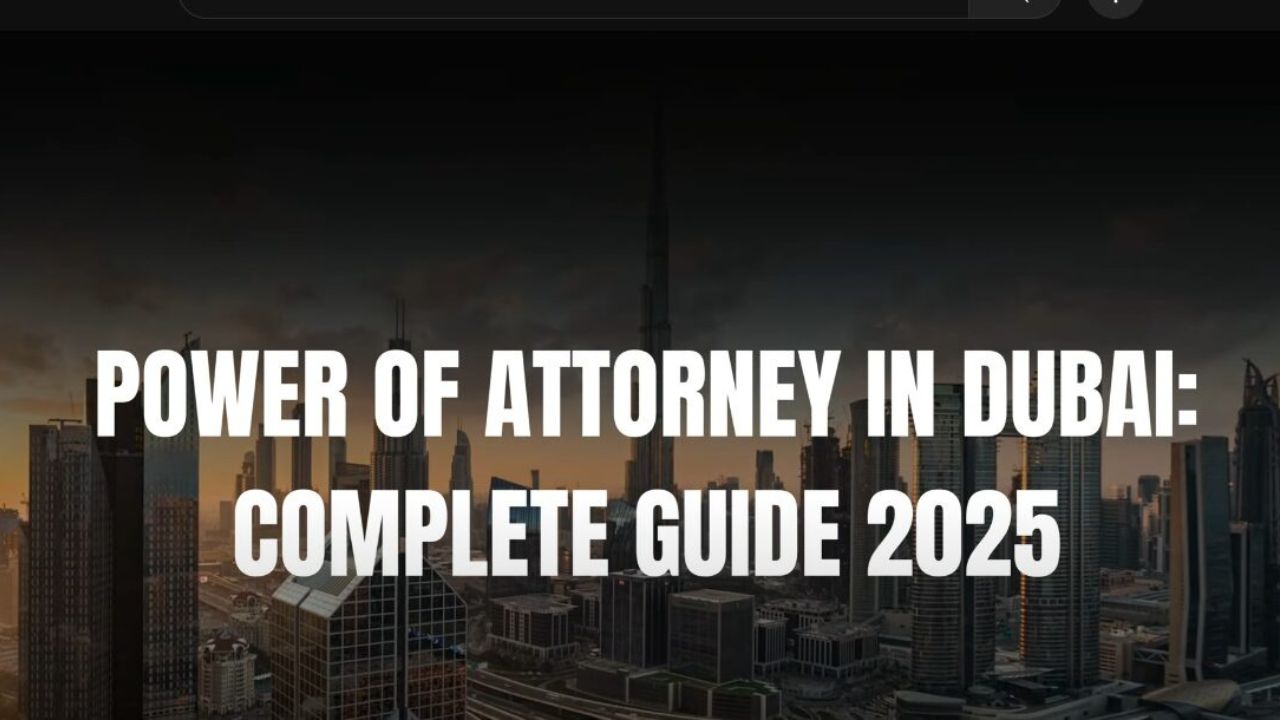
In Dubai, a Power of Attorney (POA) is a pivotal legal instrument that empowers an individual (the principal) to delegate authority to another (the agent or attorney-in-fact) to act on their behalf in various matters. This delegation is especially crucial in real estate transactions, business dealings, and legal affairs, particularly for expatriates and investors residing outside the UAE.
Understanding Power of Attorney in Dubai
A Power of Attorney is a formal document that grants an agent the legal authority to perform specific tasks or make decisions on behalf of the principal. In Dubai, POAs are commonly utilized in scenarios where the principal is unavailable to manage affairs personally, such as:
- Real Estate Transactions: Buying, selling, or managing property.
- Business Operations: Handling company-related matters.
- Legal Proceedings: Representing the principal in court or legal matters.
Types of Power of Attorney in Dubai
Dubai recognizes various types of POAs, each serving distinct purposes:
1. General Power of Attorney (GPA)
A General POA provides broad authority to the agent, allowing them to act on behalf of the principal in a wide range of matters, including financial and legal decisions.
2. Special Power of Attorney (SPA)
An SPA is more limited in scope, granting the agent authority to perform specific tasks, such as selling a particular property or managing a single business transaction.
3. Durable Power of Attorney
This type remains effective even if the principal becomes incapacitated, ensuring continuous management of affairs without interruption.
The Process of Granting a Power of Attorney in Dubai
Obtaining a POA in Dubai involves several steps to ensure its legality and acceptance:
Step 1: Drafting the POA
The document must clearly specify the powers being granted, the duration of the authority, and any limitations. It should be prepared in both Arabic and English to facilitate understanding by all parties involved.
Step 2: Notarization
The POA must be notarized by a Notary Public in Dubai. This process authenticates the document, confirming that it has been executed voluntarily and with proper understanding.
Step 3: Legalization (if applicable)
If the POA is executed outside the UAE, it must be legalized by the UAE Embassy in the country where it was signed and then attested by the UAE Ministry of Foreign Affairs to be valid in Dubai.
Step 4: Registration
For certain transactions, such as real estate dealings, the POA must be registered with the relevant authorities, like the Dubai Land Department, to ensure its acceptance.
Validity and Revocation of Power of Attorney
- Validity Period: The validity of a POA in Dubai can vary. For property transactions, a POA is typically valid for two years for selling and five years for purchasing. However, these durations can differ based on the specific terms outlined in the document.
- Revocation: The principal retains the right to revoke the POA at any time, provided they are mentally competent. To revoke, the principal must notify the agent in writing and, if necessary, inform the relevant authorities where the POA was registered.
Costs Associated with Power of Attorney in Dubai
The expenses related to obtaining a POA in Dubai can vary based on several factors:
- Notary Fees: These can range from AED 200 to AED 1,000, depending on the complexity and length of the document.
- Legal Fees: If legal assistance is required to draft the POA, fees can range from AED 1,000 to AED 5,000.
- Translation Fees: If the document needs to be translated into Arabic, certified translation services may cost between AED 100 and AED 500.
- Registration Fees: For certain transactions, additional fees for registering the POA with relevant authorities may apply.
Overall, the total cost can range from AED 1,500 to AED 8,000 or more, depending on the specific requirements and services utilized.
Importance of Power of Attorney in Real Estate Transactions
In Dubai’s dynamic real estate market, a POA is indispensable for non-resident investors and property owners. It allows them to:
- Facilitate Transactions: Agents can handle property sales, purchases, and rentals on behalf of the principal.
- Manage Property: Agents can oversee property maintenance, lease agreements, and tenant relations.
- Represent in Legal Matters: Agents can represent the principal in legal disputes or proceedings related to the property.
This delegation ensures that property matters are managed efficiently, even in the principal’s absence.
Risks and Considerations
While a POA offers convenience, it also entails certain risks:
- Misuse of Authority: The appointed agent may act beyond the granted powers, leading to potential legal issues.
- Lack of Oversight: Without proper monitoring, the agent’s actions may not align with the principal’s best interests.
To mitigate these risks, it’s crucial to:
- Choose a Trusted Agent: Select someone with integrity and reliability.
- Clearly Define Powers: Specify the exact powers and limitations in the POA document.
- Regularly Review the POA: Ensure that the POA remains aligned with the principal’s current intentions and circumstances.
A Power of Attorney in Dubai is a vital legal tool that enables individuals to manage their affairs efficiently, especially in real estate and business matters. By understanding the types, processes, costs, and potential risks associated with POAs, principals can make informed decisions and ensure that their interests are adequately represented. Whether you’re a resident or non-resident investor, leveraging a POA can facilitate seamless transactions and effective management of your affairs in Dubai.
Have questions about your next real estate investment? Contact Valorisimo today to get personalized insights and expert advice tailored to your goals.
